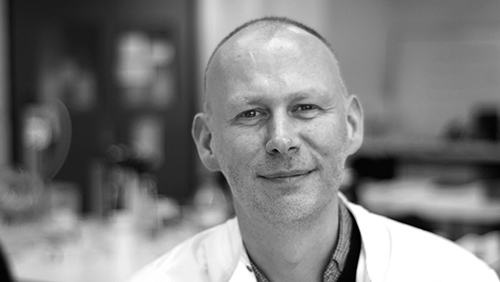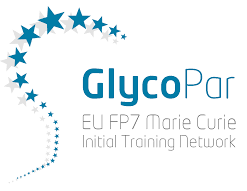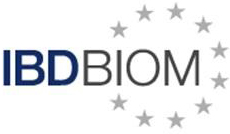Contacts
R&D Programmes

Dr. Daniel Spencer
Head of Development
daniel.spencer@ludger.com

Ludger's Medical Glycomics Programmes have been established to study changes in glycosylation in different body states. These include inflammation, cancers, diabetes and CVD.
This area of study originated in the work published in Nature by Parekh et al in 1985 entitled 'Association of Rheumatoid Arthritis and Primary Osteoarthritis with Changes in the Glycosylation Pattern of Total Serum IgG' : Nature 316, 452-457 (01 August 1985) and has led to a strong initiative to explore the relevance of glycomics in Precision Medicine.
The glycomics data generated from our studies is being used for the following:

GlycanTrigger is a project funded by the European Union within the Horizon Europe Research and Innovation Actions, bringing together 9 organisations from 6 different European countries and 1 non-European country (USA).
Its goal is to investigate when, why, and how changes in gut glycome trigger the health-to-chronic inflammation transition. The project started in January 2023 and will be developed for 6 years under the coordination of Instituto de Investigação e Inovação em Saúde (i3S) from the University of Porto, Portugal. Besides Ludger, the GlycanTrigger consortium includes representatives from medical universities and research centres, clinical centres, one consultancy company, and one European patients’ association.
www.glycantrigger.eu

Ludger is pleased to announce being awarded an Innovate UK grant as part of the governments covid-19 response competition "Business-led innovation in response to global disruption round 2".
This project is to accelerate the development of a proof-of-concept prototype of GlyHealth-COVID - a medical technology we are designing to identify 'immunofrail' individuals who are at high risk of becoming severely ill or dying from COVID-19. Initially, it was thought that only the elderly would get very sick and die from COVID-19 but around 25% of deaths have been in those aged below 65 with severe sickness and death occurring even in young, apparently fit, individuals. Using current medical technology doctors cannot foresee which of their COVID-19 patients will have the worst health outcomes so they must guess. Our work is on early detection and prediction of the health trajectories of patients with chronic and acute inflammatory diseases (IDs). COVID-19 is an acute-ID which causes sickness and death in similar ways to chronic-IDs but at greatly accelerated speeds. Immunofrailty is a concept we have developed during over a decade of research. It is a very complex condition with a wide range of causes that all lead to high levels of chronic inflammation. Current medical technology can only measure acute inflammation, not immunofrailty-related chronic inflammation. We have developed a medical technology called GlyHealth that reliably measures immunofrailty and chronic-inflammation in individuals from changes in biomolecular patterns in their blood. This can be done without interference from acute inflammation. Those patterns are signals that can potentially predict dangerous inflammatory storms.
GlyHealth-COVID is a based on a test that we have developed to help gastroenterologists caring for inflammatory bowel disease (IBD) patients. We can test its ability to identify immunofrail COVID-19 patients in an initial clinical study. If it performs then GlyHealth-COVID would be able to reliably identify vulnerable COVID-19 patients from small (0.2ml) samples of their blood. The samples can be taken with easy to-use fingerprick blood collection kits which can used at home.
www.gov.uk/government/organisations/innovate-uk

The importance of glycomics to healthcare is summarised in a recent report endorsed by the US Academies which stated that "glycans are directly involved in the pathophysiology of every major disease" and that "additional knowledge from glycoscience will be needed to realize the goals of precision medicine and to take advantage of the substantial investments in human genome and proteome research and its impact on human health". The name GlySign refers to the distinctive and complex changes in the glycomics profiles or 'Glycan Signatures' of the body's glycoproteins that occur during progression of many chronic diseases including cancers and inflammatory conditions. GlySign aims to train skilled glycomics specialists and offers 6 PhD positions for EarlyStage Researchers (2 based at Ludger). Ludger is joined in the GlySign consortium by Genos and Leiden University Medical Center.
www.glysign.eu

Colorectal cancer (CRC) is the second most common cancer in Europe and is one of the most curable cancers when detected in its early stages. However, the heterogeneous nature of CRC leads to highly variable disease progression and outcome as well as treatment response, resulting in an urgent need for personalized treatment and biomarkers. GlyCoCan will enhance our understanding on the structure-function relationship of glycosylation in CRC. The goal is to discover improved diagnostic and prognostic biomarkers and pave the way for novel therapeutic targets.
https://glycocan.eu/

MODY affects 1-4% of the diabetes patient population and it is estimated that at least 90% MODY patients are misdiagnosed and therefore, often prescribed ineffective treatment. A clinical diagnostics 'MODY' assay has been developed to identify patients with the most common form of MODY, HNF1A-type. These patients have reduced plasma outer arm fucosylation which is caused by defects in the HNF1A gene. The MODY assay is a plate based biochemical assay which provides a faster and more affordable alternative to genetic testing.
This exciting project, named GlycanDx-MODY, will be led by Ludger Ltd and includes the following partners; Genos (Croatia) and OCDEM (Oxford University, UK). The goal is to develop a clear business and technology plan for this assay to facilitate its incorporation into a diagnostic pathway for MODY which will ultimately be adopted by healthcare providers at the primary care level.
www.gov.uk/government/organisations/innovate-uk

Protozoan parasites and helminths are the cause of some of the most devastating diseases worldwide and a major effort is needed to be able to control or eliminate these diseases. Glycoconjugates are present on the surface of many parasites and they are frequently involved in their survival strategies by forming a protective barrier against host defences. GlycoPar has been set up to study parasite glycobiology in detail and translate this research into successful therapeutic strategies.
www.glycopar.eu

The aim of IBD-Biom is to discover new, more reliable clinical biomarkers for IBD to allow the early diagnosis of patients and to point to possible molecular targets for new, improved therapies for patients. To date, genome-wide association studies have identified around 100 IBD susceptibility loci but clinical application has been limited. In this programme, an IBD biomarker discovery and assay system (IBD-BDAS) will be developed and used for biological samples from 6000 well characterised IBD patients and controls with the aim of identifying possible biomarkers.
www.ibdbiom.eu
To view our posters, please visit our Posters page.

Dr. Daniel Spencer
Head of Development
daniel.spencer@ludger.com